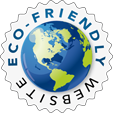Happy World Environment Day!
Did you know that the first ever World Environment Day was held in 1974? It was established back in 1972 by the UN General Assembly during the Stockholm Conference on the Human Environment, and since then it has been doing great job raising awareness about different environmental issues, such as overpopulation, pollution, wildlife and global warming. Last year was the year of banishing plastic, and even though we are nowhere near a plastic-free way of living, I see more and more people trying to reduce the use of plastic – even those who have never seemed the type.
This year’s theme is Air Pollution – nothing short of horrible. And if you are even a little bit like me and worry about the future of our planet and its biodiversity, as well as life and health of humankind, then let’s dive in!
air pollution facts
Air pollution may not seem like much to some people, but it is actually deadly. It is not just the smell of car exhaust fumes when you walk along a busy road, or a smoke from a chimney on a winter night. Air pollution is a global crisis and it caused an estimate of 4.2 million premature deaths in 2016 alone (WHO, 2018). No country is virtually safe; it doesn’t matter if we live in India or the United States. Some countries may be a little better off, but according to the World Health Organisation, in 2016, 91% of global population lived in the countries where the air quality standards have not been met (WHO, 2018). That says something.
Air pollution is defined as harmful or excessive quantities of substances including gases, particles and biological molecules in the atmosphere. Air pollution affects all humans, as well as animals and the environment in general. The direct consequences of air pollution for human health include increased incidence of asthma, allergies, heart attacks, strokes and cancers. In 2013, WHO’s International Agency for Research on Cancer also concluded that polluted air is carcinogenic to humans (WHO, 2018).
In terms of environmental health, the gases and particles that pollute the air, create a dense layer in the atmosphere that traps the heat from the sun inside, thus leading to rising temperatures – i.e. global warming.
There’s no end to the harmful effects of air pollution. It is toxic and it is dangerous to all living organisms and to the planet.
If you would like to check the air quality in your area, a Norwegian website AirPollution.Today can provide you with some detailed insights on the matter.
the leading causes of air pollution

Air pollution is a multifactorial phenomenon, though it most often springs to mind when we walk past speeding cars or cars stuck in a traffic jam. I often get reminded of air pollution when I step outside only to find the horrible smell coming from a local chemical plant. I walk past the plant, and my mind starts to wonder what nasty effects may these chemicals have on our health. A few years ago, I made a conscious choice of eliminating as many chemicals from life and home as physically possible: I try to choose more natural beauty products, I do not use harsh chemicals for cleaning. I prefer vinegar and baking soda in my sink to CIF and plant-based formula of Ecover to any Tide or Ariel detergent. I’d rather diffuse essential oils in my home than spray an air freshener.
These everyday chemicals that we use contribute to global pollution overall, including air pollution. And so do the cars. But this is not the end of it. Forest fires and natural gases found in soil, like radon, contribute to it too. Same goes for livestock and methane emissions that come with it, not to mention the CO2 emissions from all the transportation involved in livestock rearing and agriculture. We burn fossil fuels everyday to power and heat our homes, charge our devices, etc. Oil production, coal mining, use of chemical treatments and pesticides, smoking and many other things we, humans, do are killing our environment – and us.
How can you help?

This post contains affiliate marketing. For full disclosure, please refer to Disclaimer.
It is true to an extent that governments all over the world must unite to fight this problem. While they can introduce new guidelines for industries and impose taxes for noncompliance, it is our responsibility as consumers to make wiser choices. Manufacturers will be using fossil fuels and not eco-friendly materials for as long as we are buying them – because they are easier and cheaper to produce, and they bring money. If we invest into cleaner and greener products and adopt a conscious lifestyle, the companies will sooner or later have to follow in order to stay in business. So it is really not a good excuse to keep doing what we are doing just because that is the way things are.
If you can reduce the consumption and usage of chemicals in your home by investing into eco-friendly companies, you are skipping on fuelling someone’s dirty business, which now contributes less and less to the global pollution. If you can go vegetarian for just one or two days a week, the reduction in meat consumption will lead to reduction in livestock and reduction in methane and greenhouse gas emissions. If you can ride a bike or walk to work or school, that means one less car releasing harmful fumes into the atmosphere for the 5 minutes that you have to drive. If you can get a solar panel for your home, that means using less fossil fuels that cost out planet so much. Whatever you do, however small it seems, it will have a ripple effect.
In Summary:
- Use greener sources of energy, whenever possible – some energy providers are now switching to renewable energy. You can partially power your own house by installing solar panels. It also helps to make your home energy efficient by using A+ rated appliances and insulating your house.
- If you are a blogger or a website owner, there are companies that provide eco-friendly web hosting powered exclusively by renewable energy. Have a read here if curious.
- Consider using public transport or car pooling, or even walking/cycling where possible. Look at energy efficient cars with lower CO2 emissions. You’ll pay less tax as a lovely bonus.
- Choose natural home and beauty products or try making your own. Big brands don’t care about you or the environment as much as their own money.
- Considering going vegetarian for a day or two, or weekdays, or even fully vegetarian! If you already are one, think about going vegan.
- Plant trees ? – in your garden, in community garden, anywhere! Did you know that a web search Ecosia plants trees while you search? Free of charge to you! Trees consume CO2 and absorb other air impurities and give back oxygen. I love trees. Let’s plant and hug trees together!
Let’s make this world a better place!
Lana, The Virtual Tree Hugger x
References:
Air Pollution, Facts and Information – National Geographic




0 Comments